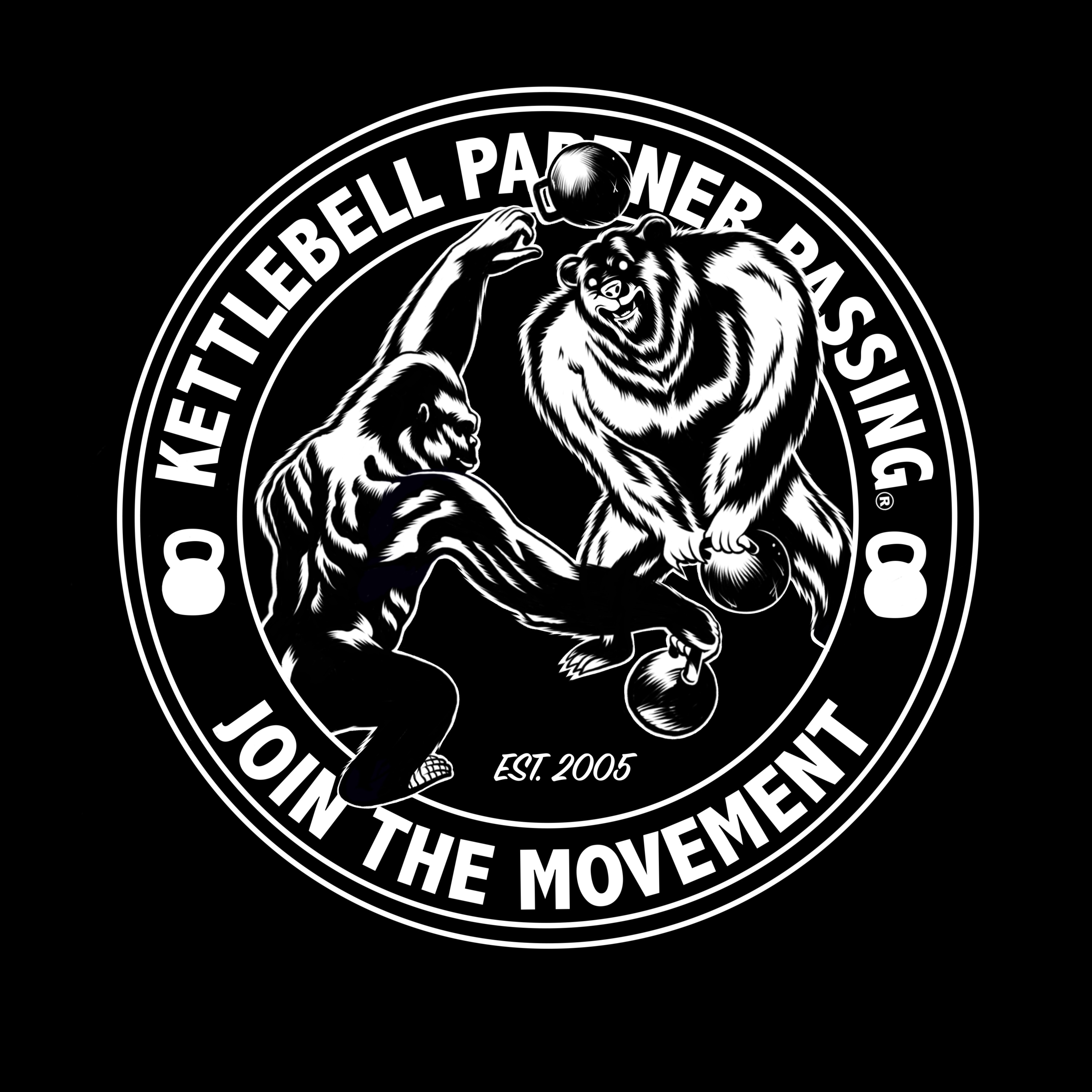Patience is Appreciated!
- Kettlebell Partner Passing

- Oct 15, 2019
- 4 min read
Updated: Feb 28, 2021
By: Mike Visscher

In the context of KPP, it demonstrates trust. We don’t talk about these terms so often in exercise culture or sports, but in strongman frisbee, aka Kettlebell Partner Passing®, they apply. Most of the time in KPP we pass with a spin or flip of the kettlebell. One reason for this is that the kettlebell continues spinning after a pass is caught. This should lead to a horizontal travel of the bell after initial contact with the handle in the hand of your partner, as the inertia of the spinning kettlebell wants to continue “through” the body. It therefore encourages a horizontal hip hinge and ought to minimize unnecessary work done by the low back of the person on the receiving end. We teach this concept in a hardstyle kettlebell swing for exercise purposes and it applies here equally.
The most common errors in swinging a kettlebell have to do with poor timing. Timing is as important in KPP as it is in performing a basic kettlebell swing. The extra consideration here, however, is that the spin plays a role in the body mechanics when losing and regaining contact with the kettlebell. This doesn’t apply in an exercise-only setting as there aren’t objects hurdling through space in the same way.
In pursuit of this perfect timing, I seek to deliver a pass with the right speed and spin and at the right height to allow my partner to move with minimal wear and tear on the body and to conserve energy. This is the art of KPP that I get lost in. Also, the metal can get heavy. It’s much more difficult to try and correct or predict the speed of a pass with the arms (you will have time to react to a bad one) rather than allow your hips to redirect the weight—again—just as we teach with a kettlebell swing. “Treat a light weight like a heavy weight.” Heard this? Live by this in KPP (use your hips and not your arms) and you’ll have a much smoother ride.
On top of all of this, a perfect rate of spin will push the hands back toward the body and hips while a spin that’s too slow can jerk the hands and then the low back. I often see novice passers trying to muscle the kettlebell back toward them. Speed and tension don’t often go together, so when someone grabs the handle forcefully, their slow hands tell the hips to move back too soon, and their back can suffer as a result. This again, detracts from what the body might do in a more optimally-timed sequence of loading.This negates the effect I aim to offer my partner with a skillfully delivered pass.
In so many cases, I will try and speed up my spin, delay my release point, etc.— the space with which I can affect my partner in this way has shrunk because they are trying too hard to “get ahead” of the kettlebell. All of this can be fixed with simple communication, but as a teacher I find it sometimes valuable for people to discover things by feeling them for themselves. All I’ve previously mentioned will be explained to you when we practice, but know also that I have told people to swing with a heavier weight to correct a technical flaw.
My original inspiration for writing this was my reflection of “steering” people in a direction by overcompensating in some way with my passing style toward them. If you have experienced KPP you should mostly understand this. We instructors personally pass first with novices because we are experienced and we seek to build trust and allay fear in these exchanges. We often also relate things you might experience in KPP to things you can apply to life in other ways. Patience and trust appear often in the same sentence or the same conversation in life and when discussing KPP. Trust edifies your partner. Enthusiasm grows, confidence follows, flow state happens more readily, and KPP is happening how it is intended to.
“Trusting the process” requires openness. I’ve had to open myself to processes of life and allow time to teach me lessons. We can learn life concepts from simple things and can also apply life lessons we’ve learned right into those same simple things and more rapidly improve in all areas. KPP relates to life. This can apply to many arts for those who immerse themselves in a pursuit of excellence. “This is like that” or “that is like this”... and other people are a reflection of you.
KPP is an easily accessed gateway for discovery to this end, as we must stand across from a human mirror who reflects what we project in an immediate and literal way. We have a dynamic interplay with another amazingly complex being and we have the opportunity to adapt to them and to refine what we offer back.When we are so preoccupied with self, kettlebell partner passing asks us to step outside ourselves and perform a skill that demands concentration in making someone else’s experience better. In return we’re rewarded with self-growth.

To get email notifications about new blog posts, subscribe to our mailing list.


Comments